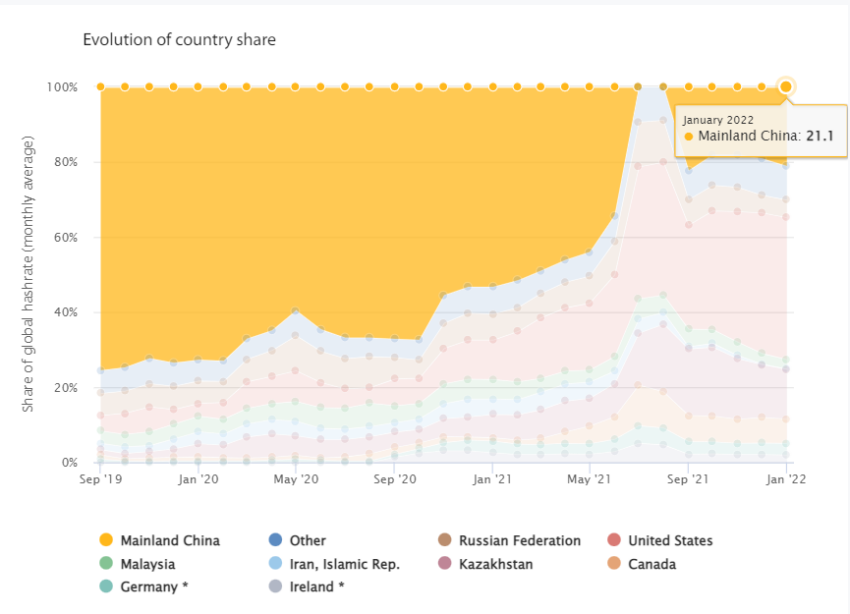Chinese Communist Party official Xiao Yi pled guilty to offering Bitcoin miners financial subsidies and power guarantees despite a nationwide cryptocurrency ban.
According to state-owned Chinese news agency Xinwen Lianbo, Yi accepted 125 million yuan in bribes related to projects and job postings and caused “heavy losses to public property” through illegal agreements with Bitcoin miners.
Chinese Government Bans Do Little to Stop Miners
According to the report, Xi engaged in unethical abuses of power while serving as secretary of the Fuzhou Municipal Committee of Jiangxi. The court has adjourned and will reconvene for Yi’s sentencing at an undisclosed date.
The Chinese government banned cryptocurrency mining activities in Sep. 2021 as part of a sustained push toward reaching carbon neutrality by 2060. The moratorium also affected other industries, including disposable plastic cutlery manufacturers and coal miners.
Under the ban, miners could not legally access electricity or capital markets, effectively cutting the Chinese hashrate overnight. Many miners migrated westward to exploit cheap or flexible power arrangements in Texas and European regions like Abkhazia.
But data from the Cambridge Centre for Alternative Finance revealed a steady increase in mining activity, and by Jan. 2022, China accounted for more than one-fifth of the total hashrate.

While it is unclear how miners accessed premises and electricity, Yi’s case reveals loopholes in China’s enforcement that could have allowed miners to fly under the radar.
After the ban, one miner said he changed the facilities where he mines to disguise the high electricity consumption inherent in mining.
China Continues Developing Anti-Crypto Infrastructure
While the Chinese government is against private cryptocurrencies, it has plowed substantial resources into trialing its e-Yuan CBDC. It recorded over 100 billion yuan ($13.9 billion) in transaction volume on Aug. 31, 2022.
Crypto enthusiasts have long criticized CBDCs as being surveillance tools of authoritarian governments like those in China and Turkey. The Turkish Central Bank recently announced its first transaction with the digital Lira. It will also bundle digital identities into its CBDC, which some believe could be a step towards a big brother state.
On Dec. 27, 2022, China Daily reported the launch of a state-backed, non-crypto digital collectible marketplace called “China Digital Asset Trading Platform.” The marketplace was launched in partnership with China Technology Exchange, China Cultural Relics Exchange Center, and the Huaban Digital Copyright Service Center Co., Ltd.
The marketplace will “promote the sharing of the achievements of Chinese cultural digitalization.”
The new platform will run on a state-sanctioned blockchain called the “China Cultural Protection Chain.” This network is reportedly considered “the only credible depository insurance platform for tradeable digital assets.”
For Be[In]Crypto’s latest Bitcoin (BTC) analysis, click here.
Disclaimer
In adherence to the Trust Project guidelines, BeInCrypto is committed to unbiased, transparent reporting. This news article aims to provide accurate, timely information. However, readers are advised to verify facts independently and consult with a professional before making any decisions based on this content. Please note that our Terms and Conditions, Privacy Policy, and Disclaimers have been updated.


